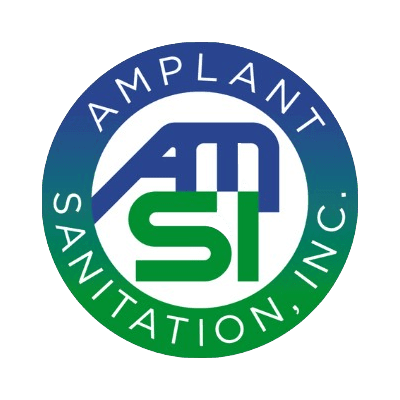The Importance of Regular Sanitation Audits for Food Safety

Posted on March 8th, 2024
In the fast-paced world of food production, ensuring the safety and quality of products is paramount. One of the most effective ways to achieve this is through regular sanitation audits. These audits play a crucial role in identifying and addressing potential hazards that could compromise food safety. By conducting regular audits, food production facilities can maintain high standards of cleanliness and hygiene, ultimately reducing the risk of foodborne illnesses and protecting consumer health.
Ensuring Compliance With Regulations
Ensuring the safety of food products is paramount in the food production industry. One crucial aspect of maintaining food safety standards is conducting regular sanitation audits. These audits are comprehensive evaluations of a facility's sanitation practices, equipment, and procedures. They help identify potential hazards and ensure that proper cleaning and sanitizing protocols are being followed. Regular sanitation audits can significantly reduce the risk of contamination and help prevent foodborne illnesses.
One of the key benefits of regular sanitation audits is that they provide an opportunity to identify and rectify any sanitation issues before they escalate. By conducting these audits regularly, food production facilities can stay ahead of potential problems and maintain a high level of cleanliness and safety. Additionally, sanitation audits can help ensure compliance with regulatory requirements and industry standards. This is essential for maintaining the trust of consumers and regulatory bodies.
The Role of Sanitation Audits in Preventing Contamination
Contamination of food products can occur at any stage of the production process if proper sanitation practices are not followed. Regular sanitation audits play a crucial role in preventing contamination by ensuring that all equipment and surfaces are properly cleaned and sanitized. These audits also help identify any areas where improvements can be made to reduce the risk of contamination.
Furthermore, sanitation audits help establish a culture of food safety within a facility. By emphasizing the importance of cleanliness and hygiene, audits can help ensure that all employees are aware of their role in maintaining food safety standards. This can lead to a more proactive approach to sanitation and a reduced risk of contamination.
Understanding the Benefits of Third-Party Audits
While many food production facilities conduct internal sanitation audits, third-party audits can provide additional benefits. Third-party auditors bring a fresh perspective and can identify issues that may have been overlooked internally. They also provide an unbiased assessment of a facility's sanitation practices, which can be valuable for identifying areas for improvement.
Additionally, third-party audits can help demonstrate a facility's commitment to food safety to customers and regulatory bodies. Many customers and regulatory agencies require third-party audits as a condition of doing business, so having a third-party audit can help ensure that a facility remains in compliance with these requirements.
How to Prepare for a Sanitation Audit
Preparing for a sanitation audit involves several key steps. First, it is important to review and update sanitation policies and procedures to ensure they are in line with current industry standards. Next, it is essential to conduct a thorough inspection of the facility to identify any areas that may need attention before the audit. This may include cleaning and sanitizing equipment, repairing any damaged surfaces, and ensuring that all employees are properly trained in sanitation procedures.
It is also important to gather all necessary documentation, such as cleaning schedules, maintenance records, and employee training records, to demonstrate compliance with sanitation standards. Finally, it is helpful to conduct a mock audit to identify any potential issues and address them before the actual audit takes place.
The Benefits of Regular Training and Education
Regular training and education are essential components of maintaining effective sanitation practices. By providing employees with ongoing training on proper cleaning and sanitizing procedures, food production facilities can ensure that all employees are knowledgeable about food safety standards. This can help reduce the risk of contamination and improve overall sanitation practices.
Additionally, regular training and education can help foster a culture of continuous improvement within a facility. By encouraging employees to stay updated on the latest sanitation practices and techniques, facilities can continually improve their sanitation protocols and reduce the risk of contamination. This can lead to a safer work environment and higher-quality products for consumers.
Conclusion
Regular sanitation audits are essential for ensuring food safety in food production facilities. These audits help identify potential hazards, prevent contamination, and ensure compliance with regulatory requirements. By conducting regular sanitation audits and implementing proper sanitation practices, food production facilities can maintain a high level of cleanliness and safety, reduce the risk of contamination, and protect the health of consumers. Contact A&M Sanitation Inc. today to schedule a consultation and learn how our sanitation services can benefit your business. Your food safety is our priority.
Start Sanitizing Now!
Reach out to A&M Sanitation Inc. today for all your sanitation and food safety needs. Our dedicated team is here to provide you with reliable and comprehensive solutions tailored to your facility's requirements.
